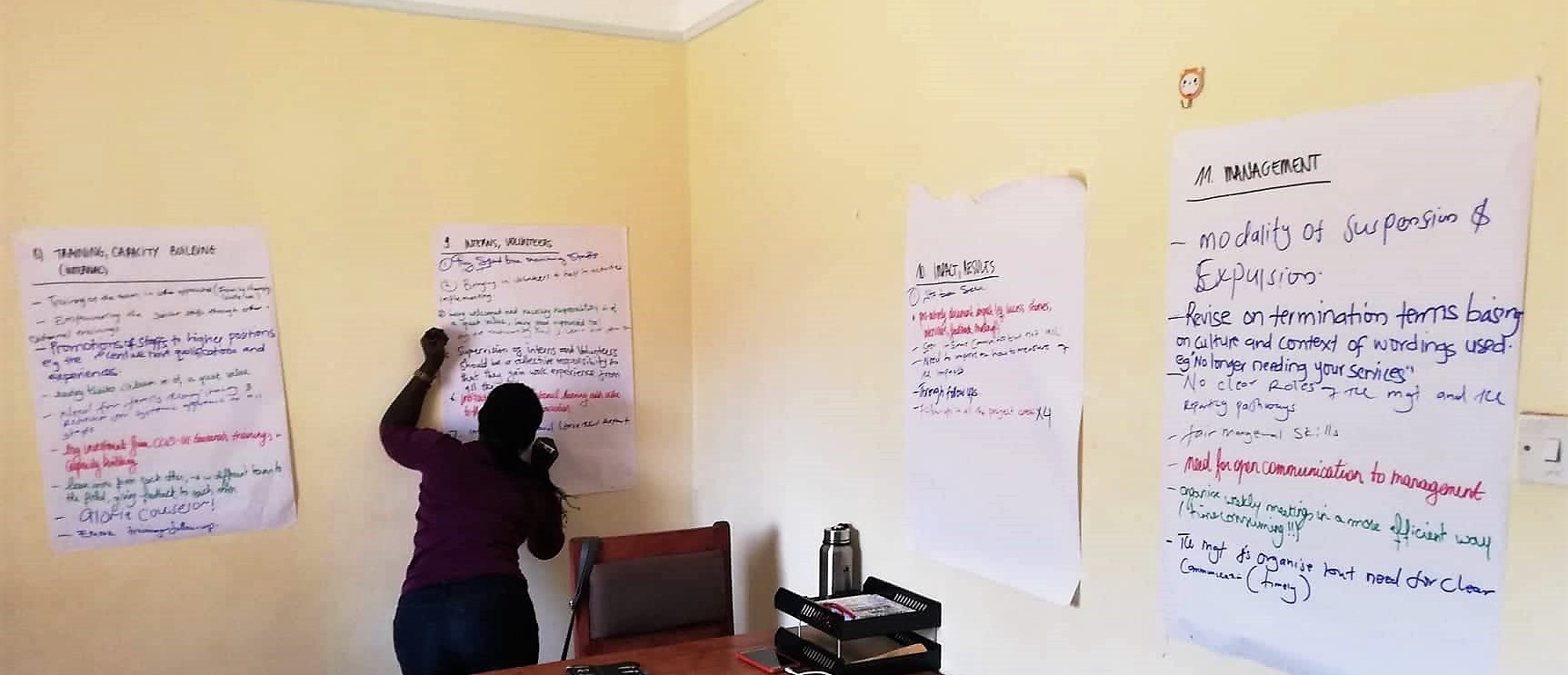UNCERTAINTY IN THE CONTEXT OF CONFLICT, DISPLACEMENT AND ENCAMPMENT
Country
Uganda
01-10-2014 - 30-09-2018
VLADOC (VLIR-UOS)
Julie Schiltz,
Sofie Vindevogel,
Eric Broekaert &
Ilse Derluyn
Situations of conflict, displacement and encampment are, in both academic literature and popular media, often considered extremely uncertain. Crisis is seen as a radical rupture of the everyday normality, and displacement is deemed a temporary and liminal condition that will become ‘normal’ again once people return home. Refugees and Internally Displaced Persons (IDPs) are commonly portrayed as waiting, suffering, and hoping for return, and the refugee experience is seen as an experience of emptiness, scarcity and unpredictability.
But for many people, crisis is the everyday reality rather than an abrupt change. More than 60 million people are currently displaced, and the number keeps rising. Refugee situations last for 20 years on average. Nonetheless, notions of temporality, uncertainty and unpredictability underlie most of our current understanding of situations of conflict, displacement and encampment.
Uncertainty is often considered essential to the refugee experience, and is perceived as a stable condition over time and space. Yet, we know very little about how people themselves experience uncertainty in their daily lives and in future. In addition, conflict, displacement and encampment are social phenomena, shaped by people, institutions and the historical and societal context in which they occur and in which they are represented and managed. The idea of such contexts as uncertain is thus also prompted by the way we look at and handle refugees in today’s world. Although uncertainty is an important topic in refugee studies literature, it is more often an implicit assumption, than the object of inquiry in thinking about refugees issues, and the condition of uncertainty itself remains understudied and undertheorized.
But for many people, crisis is the everyday reality rather than an abrupt change. More than 60 million people are currently displaced, and the number keeps rising. Refugee situations last for 20 years on average. Nonetheless, notions of temporality, uncertainty and unpredictability underlie most of our current understanding of situations of conflict, displacement and encampment.
Uncertainty is often considered essential to the refugee experience, and is perceived as a stable condition over time and space. Yet, we know very little about how people themselves experience uncertainty in their daily lives and in future. In addition, conflict, displacement and encampment are social phenomena, shaped by people, institutions and the historical and societal context in which they occur and in which they are represented and managed. The idea of such contexts as uncertain is thus also prompted by the way we look at and handle refugees in today’s world. Although uncertainty is an important topic in refugee studies literature, it is more often an implicit assumption, than the object of inquiry in thinking about refugees issues, and the condition of uncertainty itself remains understudied and undertheorized.
aim
This study aims to gain insight in how young refugees experience and deal with uncertainty, and in how their everyday realities and future perspectives are shaped by the social and political context they live in. Through empirical research with young refugees and an engagement with Refugee Studies literature, this study further wants to reflect upon the conceptual tools and approaches we use in order to gain knowledge in these contexts, and inspire alternative ways of thinking about refugee issues.
SOCIAL CONTEXT
In Adjumani refugee setting, more than 200.000 South Sudanese are hosted in about 20 camp-like settlements, established and managed by the Ugandan government. Refugees fall under the protection of UNHCR, and are supported by various local and international NGOs that provide health care, education, food and infrastructural support. The current influx of South Sudanese refugees in northern Uganda started at the onset of the war in South Sudan in December 2013, but occurs not long after many South Sudanese had been repatriated from Uganda in 2009, following a situation of conflict and displacement that lasted over more than 20 years. Some South Sudanese never repatriated, and many have lived in Uganda as refugees the greater part of their lives. In this context, as in many others around the world, protracted conflict, displacement and encampment is the everyday reality, rather than an exceptional, temporary and unpredictable situation.
PROJECT DESCRIPTION
The data for this project is collected through a qualitative longitudinal study, in which 30 South Sudanese youth who arrived in April 2015 in Adjumani refugee setting (northern Uganda), are followed over a period of 2 years. Qualitative interviews focus on how young people experience and deal with uncertainty in everyday life and in future. This data collection is complemented with participatory observations of daily life in the refugee setting, and interviews with humanitarian aid workers and Ugandan government officials.
